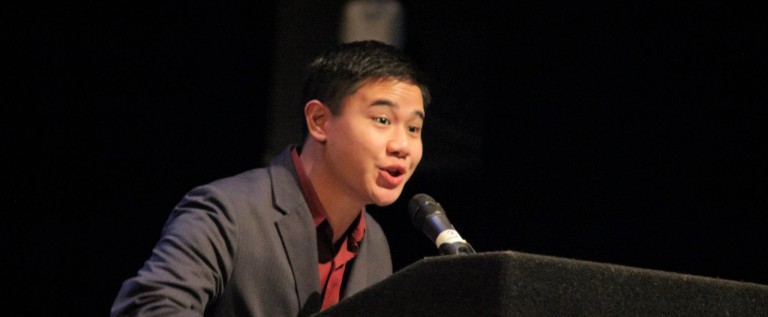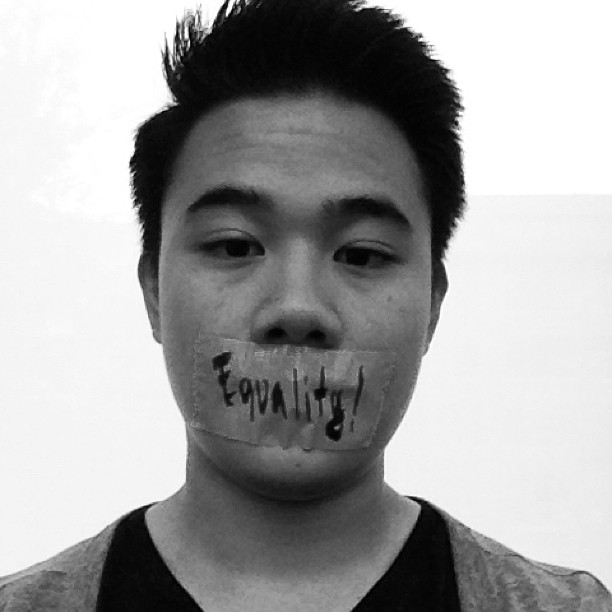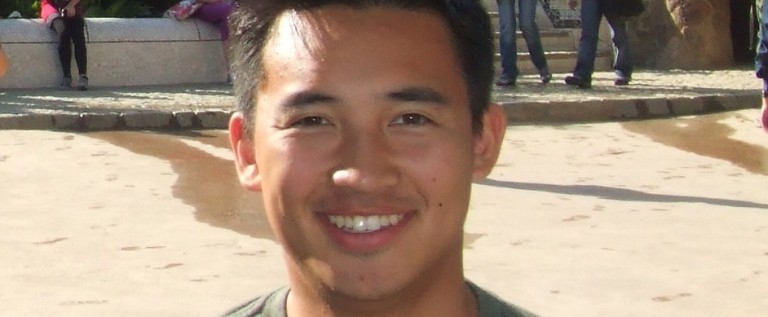ALIST 100: Raymond Jose


Q: Thank you for taking the time to sit down with me today, Ray. Earlier this year, I had the opportunity to hear you speak twice—once as the East Coast Asian American Student Union’s (ECAASU) Trailblazer winner, and again at a statewide immigrant rights training that you organized. I am at once humbled and inspired by your story as an undocumented student. Can you share with our readers a bit about your background and your work?
A: Thanks, Derek. My name is Raymond Jose, and, since April of 2000, my family and I have struggled in our pursuit of the “American Dream.” My family has sacrificed so much just so that I would be able to attend college and, in the same way, I fight for their hopes and dreams. I am a brother, son, and confidante, but, most importantly, I am my community’s organizer. I long for the day that I can look my mother and father in their eyes and tell them that everything will be all right, and that I can take care of them.
I became involved with the immigrant rights movement in 2010; it started with a campus-based organization advocating for Maryland’s DREAM Act. It then led me to become engaged nationally in the campaign for comprehensive immigration reform. Through the local organization Maryland DREAM Youth Committee, I became the lead for a program called “Education Not Deportation” (END). Through this grassroots organization, a team of seven other organizers and I work to protect family unity for the undocumented immigrant families in Maryland.
Q: What was your reaction when you first found out that you were undocumented?
A: I first found out that I was undocumented in 2009, my senior year of high school when I came home from a Virginia Tech Invitational. I was offered three scholarships for track to Penn State, the University of Maryland, and Stevenson University. I came home excited to tell my parents the great news, and, to this day, I can still remember how proud my father was.
On the other side of the room, my mother began to break down in tears and ask for my forgiveness. I was puzzled as to why she was apologizing. She then began to explain our situation and how we were undocumented. At that moment, my heart shattered, along with my hopes and dreams of attaining higher education. It was demoralizing to find out that all my hard work would amount to nothing.
Q: As an undocumented student, what are you some of the challenges and obstacles that you face on a day-to-day basis? How do you go about overcoming these challenges and obstacles?
A: Being undocumented meant that I wouldn’t be eligible for a lot of scholarships, internships, and financial aid. I can’t get a valid state ID or a driver’s license; it also meant that I wouldn’t be able to get a job. Over the years, I’ve learned to look at my life through a different perspective: no longer are these things a disadvantage, but obstacles that make me an even more determined and resourceful person. If I were given the choice to live a different life, I wouldn’t change a thing, because these struggles have made me the man I am today.
Q: So, typically, we think of immigrant rights as an issue salient to the Latino American community, but in what ways is this issue pertinent to the AAPI community? Why should AAPI students care about the immigrant rights movement?
A: Ever since I joined the movement, I knew right away that I was the minority within the minority: out of the 11 million undocumented immigrants, 1.3 million are of AAPI descent. However, as one of the fastest growing communities in the United States, our presence alone could bring forth change. As AAPI youth, we are the generation that must awaken from this “deep sleep” and become aware of the injustices that occur not only in the U.S., but also throughout the entire world. As a case-in-point: in the 2012 election, we showed our strength in numbers as AAPIs; with other communities of color, we were the deciding factors in many races.
Q: This past year, immigrant rights have come to the forefront of American public policy. In fact, President Obama has made it explicitly clear that comprehensive immigration reform is a cornerstone of his second-term policy agenda. What are your thoughts on this?
Of all former presidents, Barack Obama has had the highest number of deportations. By 2014, Obama will have deported over 2.1 million undocumented immigrants from the United States. I am a firm believer and supporter of America’s justice system, but when a large portion of that 2.1 million are students and families that have done nothing wrong and are still being separated, I know that action must be taken to preserve the God-given rights of the 11 million undocumented. Obama has stated that he wants to ensure a bright future for the undocumented youth in the United States, yet he contradicts himself by deporting them to countries foreign to them, oftentimes even separating their families.
So, when you ask me what my thoughts are on what President Obama is doing well and what he is doing poorly, all I have to say is that politicians need to follow through with their words and need to stop contradicting themselves. They need to realize that, regardless of immigration status, we are all people and should not be oppressed merely because we don’t have a piece of paper stating that we are residents of the United States.
Love people, not papers!
Q: This past year, you were instrumental in the passage of the Maryland DREAM Act. For those of our readers who might not know, can you explain a little bit about what the Maryland DREAM Act does?
A: The Maryland DREAM Act is a law that was passed on November 6, 2012 and was implemented the following month. It allows students, regardless of their immigration status, to be granted in-state tuition to four-year public colleges. Although this law helped a lot of students, it was also flawed and numerous undocumented students fell through the cracks.
Q: How can allies get involved with the immigrant rights movement? What are the next steps for the Movement? Are there things that we can do today to get involved in the immigration debate?
A: The next steps for the movement will be determined by what a pending comprehensive immigration reform bill in Congress will entail, and, like many other movements, there will always be room for improvement. To paraphrase Saul D. Linsky, there is a mountain that we continuously climb even though we cannot see the peak. We have the mind-set of a mountain climber; we climb because the mountain is there. Allies to the movement are essential. If they feel inclined to become involved, the first thing to do is to be educated on immigration reform. Be up-to-date on news, research, and reach out to an organization that advocates for immigrant rights in your local community.
At the moment, I am working on a deportation case in Salisbury, MD. Noe was illicitly pulled over for missing a screw on his license plate and when he couldn’t produce a drivers license he was taken into custody and detained by ICE. Noe has never been involved in any criminal activity, he was interrogated for 8 consecutive hours— After a background-check, officers found that Noe is not affiliated with any gangs nor has he been arrested in the 13 years he has resided in the U.S.
The first time I met Noe I asked him what his dreams were, in tears he answered, “I only want to provide and care for my daughter. I want her to have everything that I didn’t and I want her to be somebody one day.”
A man of outstanding moral character, and an intelligent girl is now uncertain of the days they have left together because of the senseless enforcement in our country. Marylanders, this is happening in our own backyard, I humbly ask for your support to take a stand with me, be the voice of those who are forced to stay silent. Friends and family I ask you to take a few minutes to sign and share the petition, thank you for the love and continuous support.
http://www.change.org/petitions/keep-noe-anita-together
In solidarity,
Ray





